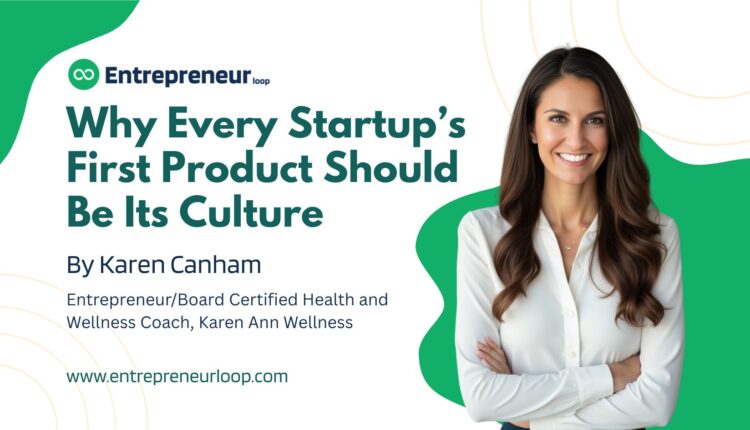Why Every Startup’s First Product Should Be Its Culture
By Karen Canham, Entrepreneur/Board Certified Health and Wellness Coach, Karen Ann Wellness
When most founders think about launching a startup, they focus on product, funding, or market positioning. Yet the startups that truly last—beyond seed rounds and early hype—understand that their first real product is not what they sell, but how they operate. Culture, not code or capital, becomes the foundation for everything that follows.
A startup’s culture forms in the first hundred decisions, often before the first official hire. It shows up in how leaders handle stress, communicate under pressure, and respond to uncertainty. These early habits become the invisible architecture of the company, shaping every future interaction. If the foundation is reactionary—built on urgency, perfectionism, or fear of failure—growth amplifies those cracks. But when the foundation is intentional—built on trust, clarity, and regulation—it becomes a competitive advantage.
Startups exist in constant motion. Markets change. Teams expand. Funding pressures mount. This unpredictability can either fuel creativity or trigger chaos. The deciding factor is how the leadership manages energy and emotion across the organization. A regulated culture—one that prioritizes clear communication, grounded decision-making, and psychological safety—creates resilience. It allows teams to pivot quickly without burning out.
The early days of a startup often reward speed, but speed without alignment is costly. Founders who invest in building emotional intelligence and nervous system awareness within their teams can sustain both pace and purpose. For example, implementing short reflection rituals—five-minute team check-ins or post-launch debriefs—helps people process stress, integrate learning, and return to focus faster. These micro-practices prevent the all-too-common burnout cycle that derails innovation.
Research continues to show that emotionally intelligent leadership drives better business outcomes. Teams that feel supported and psychologically safe outperform competitors in creativity, retention, and adaptability. In the startup world, where every decision counts, that level of cohesion is priceless. Culture, when nurtured early, becomes self-reinforcing. It attracts like-minded talent, fosters loyalty, and gives investors confidence that the team can weather turbulence.
Another key aspect of building culture early is defining what success feels like, not just what it looks like on paper. Founders often track growth metrics—user acquisition, funding milestones, market share—but overlook human metrics like engagement, clarity, and fulfillment. These are the signals that determine whether the team can sustain the vision long enough to make it real.
The best startups are not just built—they are embodied. Every interaction, meeting, and message communicates values. When founders show up regulated, clear, and consistent, their teams mirror that steadiness. It creates a ripple effect that reaches investors, customers, and eventually, the market itself.
A startup’s first product is its culture because everything else grows from it. Products evolve, markets shift, and investors come and go. But a culture grounded in trust, presence, and adaptability will always find a way forward. Before you build your MVP, build your foundation. The return on that investment compounds for years.
About Author : Karen Canham, Entrepreneur/Board Certified Health and Wellness Coach, Karen Ann Wellness


